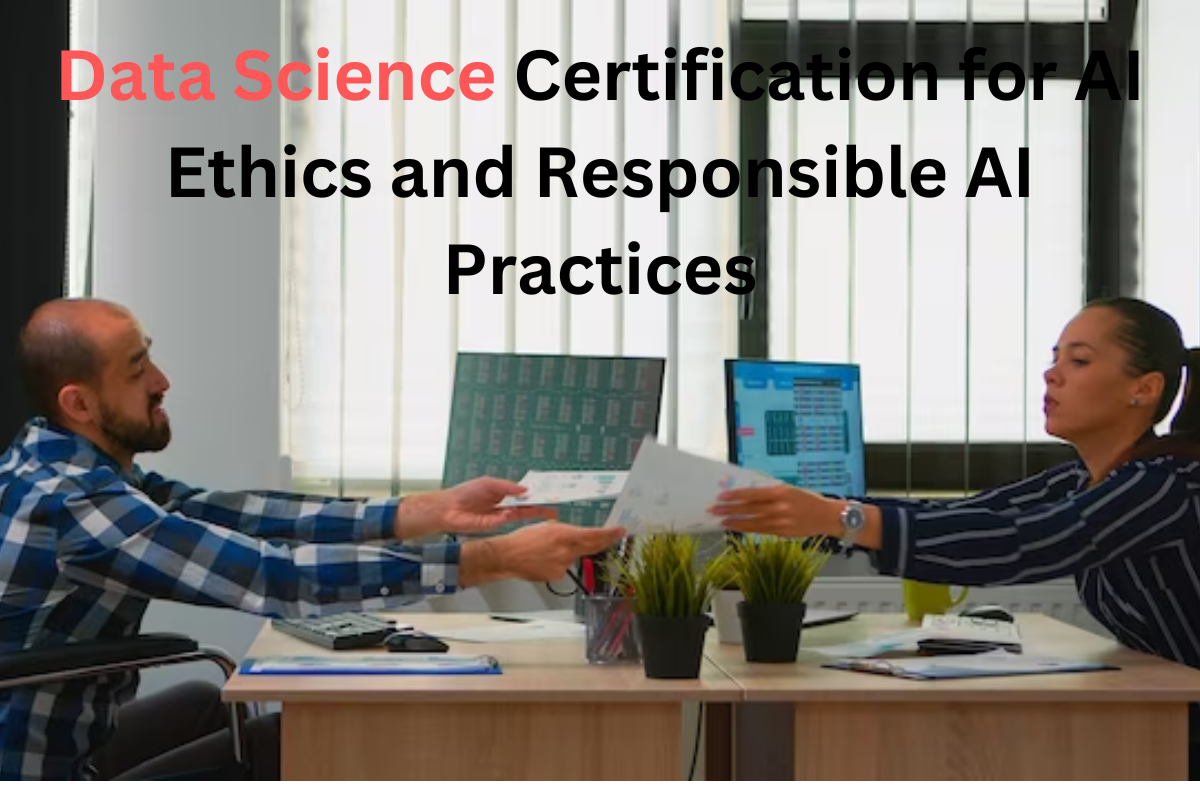Data Science Certification for AI Ethics and Responsible AI Practices
Introduction:
The ethical implications of technological advances are coming to prominence in the quickly developing fields of data science institutes in hyderabad & artificial intelligence (AI). The importance of ethical AI principles and responsible AI practises has increased as AI systems become more pervasive in our daily lives. Many people and organizations are turning to specialized certifications that concentrate on AI ethics and ethical AI practices to address these worries. 360DigiTMG is one such well-known organization that provides thorough training on AI ethics & ethical AI practices. For those looking to improve their knowledge and abilities in this crucial field, we will examine the significance of such certificates and highlight several noteworthy possibilities in this article.
The Significance of AI Ethics and Responsible AI Practices
A few of the industries which artificial intelligence (AI) have the potential to fundamentally revolutionise include healthcare, finance, transportation, and entertainment. They also pose serious ethical and social problems, though. These difficulties include the possibility that AI systems would reinforce or exaggerate current inequities, privacy issues, job displacement, and prejudice in AI algorithms.
Data Science Certification Programs in AI Ethics and Responsible AI Practices
People may now learn about AI ethics and ethical AI practises through a number of certification programmes and courses. These programmes frequently cover a variety of subjects, such as:
Ethical Frameworks for AI:
Understanding the various ethical frameworks that guide AI development and deployment, such as utilitarianism, deontology, and virtue ethics.
Bias and Fairness:
Learning how to detect and mitigate bias in AI algorithms to ensure fairness and equity in decision-making processes.
Privacy and Data Protection:
Examining the ethical considerations related to data science training in hyderabad collection, usage, and protection, with a focus on GDPR and other relevant regulations.
Transparency and Accountability:
Understanding the importance of transparency in AI systems and methods for holding AI developers accountable for their creations.
AI and Society:
Exploring the societal impacts of AI, including issues like job displacement, surveillance, and the digital divide.
AI for Good:
Investigating how AI might be applied to solve society problems and advance desirable outcomes, such healthcare, environmental protection, and social justice.
Notable Certification Programs
IBM AI Ethics Professional Certificate:
This program from IBM on Coursera covers AI ethics, bias, fairness, and transparency. It is suitable for both technical and non-technical professionals.
Microsoft AI Ethics and Bias in AI Certification:
Microsoft offers a certification course that focuses on understanding and mitigating bias in AI systems, with practical guidance for developers.
Stanford University's AI Ethics and Society Online Certificate:
Stanford's program explores the ethical and societal implications of AI and offers insights into creating responsible AI solutions.
Certified Ethical AI Practitioner (CEAP) by AIIM:
The CEAP certification provides a comprehensive understanding of AI ethics and responsible AI practices, emphasizing real-world applications.
AI for Everyone by Andrew Ng on Coursera:
This course, taught by AI expert Andrew Ng, provides a broad introduction to AI ethics and its implications for both technical and non-technical professionals.
Conclusion:
A strong dedication to AI ethics as well as appropriate AI practises is crucial while AI continues to impact businesses and society. People may create AI systems that prioritise justice, transparency, and social benefit with the help of certification programmes and courses that are centred on these topics.
Source Links : What are the Best IT Companies in Hyderabad
What are the Best IT Companies in ECIL
What are the Best IT Companies in Uppal


Comments
Post a Comment